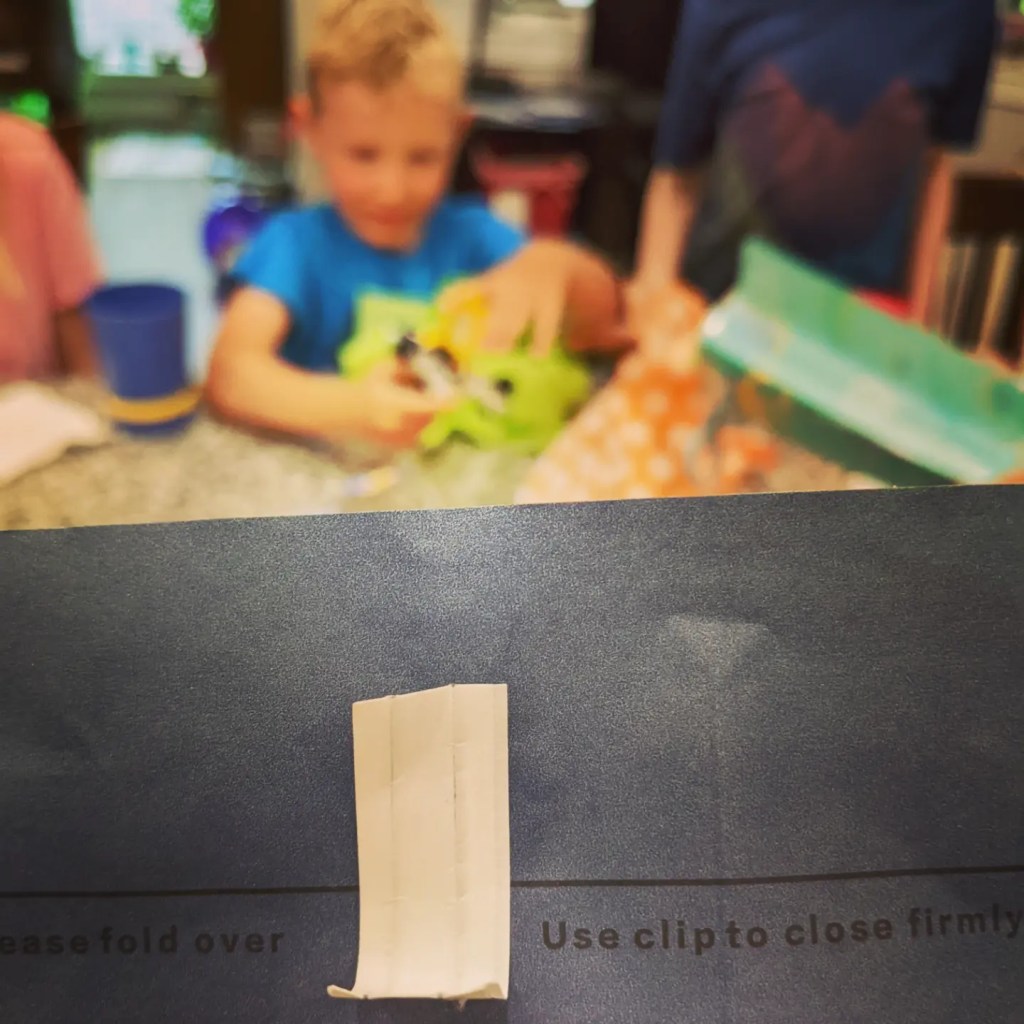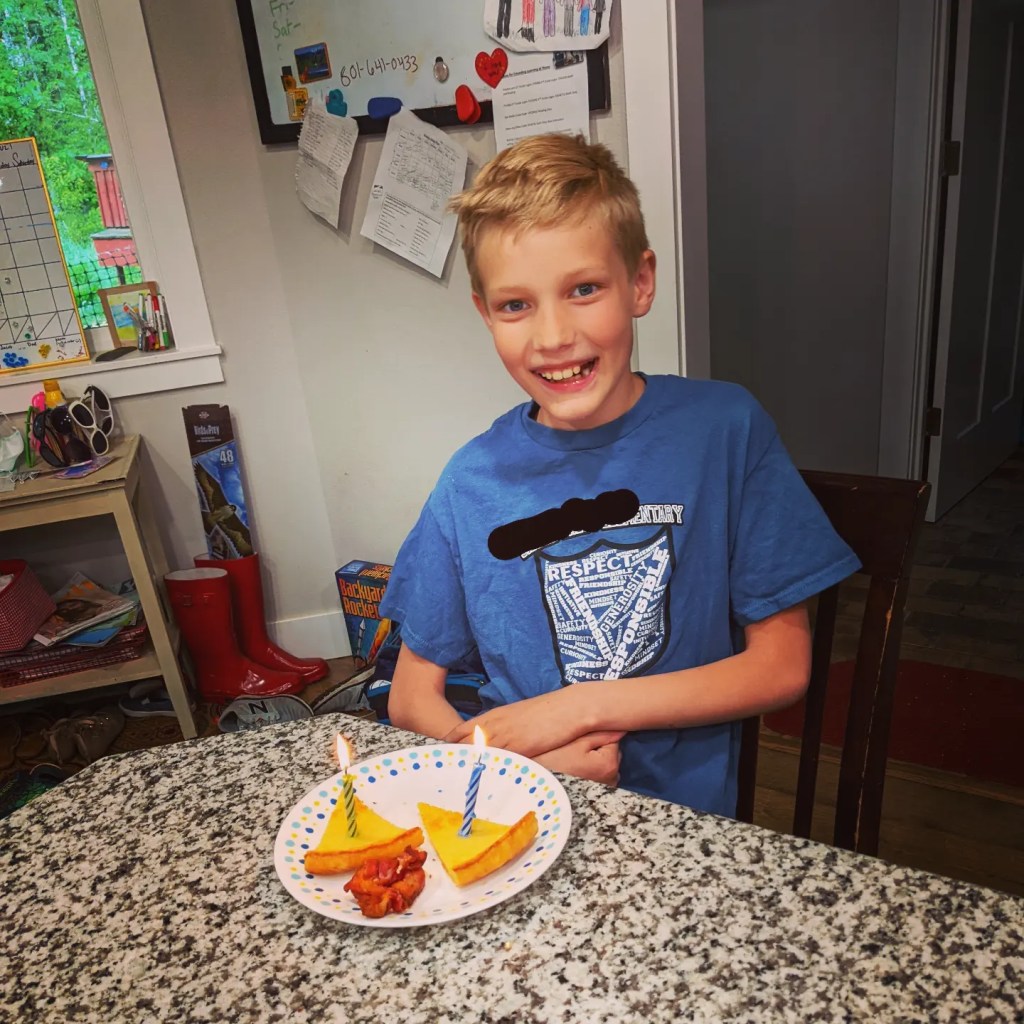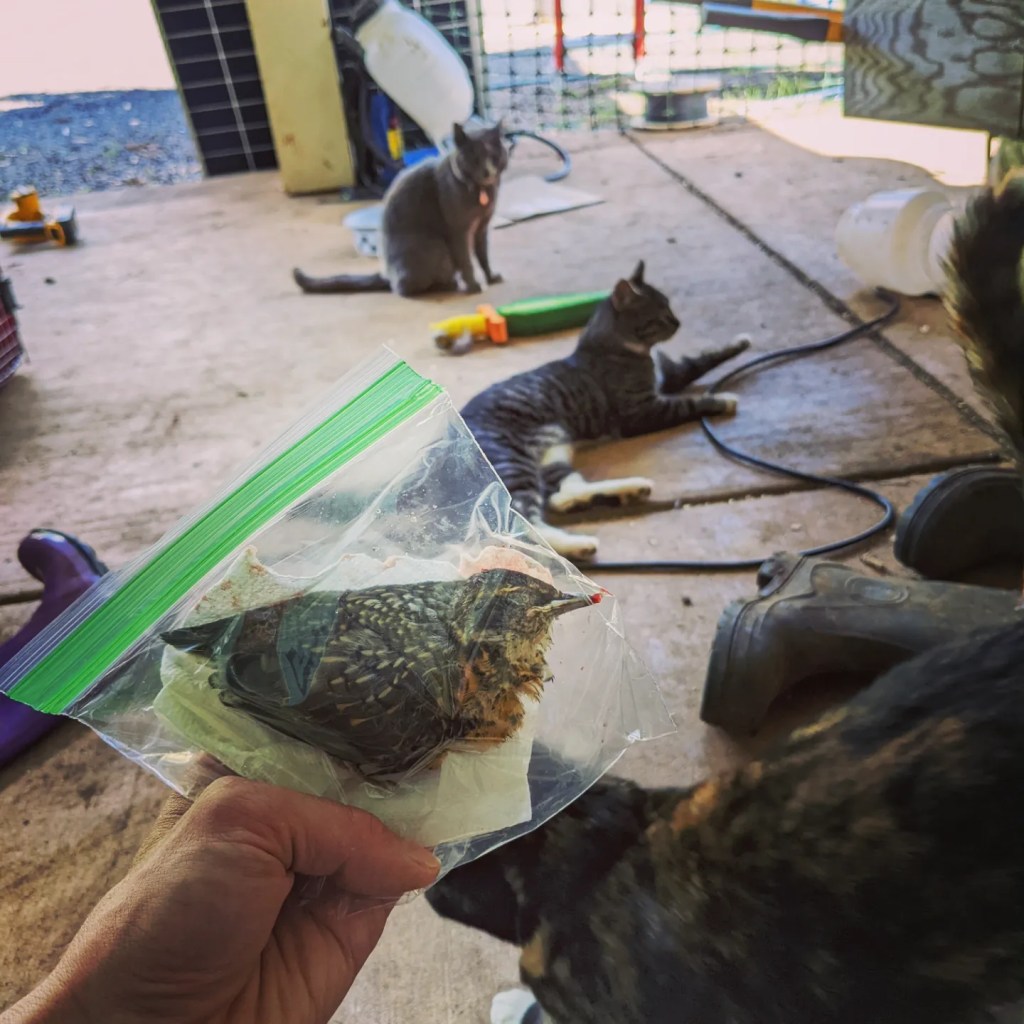I laughed when I saw what my in-laws had grabbed as an impromptu gift bag for our birthdays-in-May party. My mother-in-law, who couldn’t come due to a recent family emergency, had plenty of these bags for her daughter and grandkids to use because she’s a flight attendant. Yep, it’s a barf bag. Happy Barfday.

My youngest and I had stopped by his siblings’ school today and had seen our neighbor holding a green barf bag. The poor kid looked green enough as it was. I made light conversation, tried to hide the green food I was carrying, and assured my preschooler that most kids don’t throw up at school.
Back to our life of driving to schools all day long. Picked up his oldest sister and headed to a couple stores. Dodged his request for Raffi’s Sing-Along CD and tuned into NPR for some news.
Then, like some pathetic rerun in place of real news, the old standby report sounded. It had become so common before the COVID restrictions had dried it up, but apparently it was back due to popular demand.
Shooter. Some number of kids [God no!!] dead in some place where I could have left my kids today.
I switched back to Baby Beluga.
What a laugh to think I should send my son to kindergarten with a barf bag. Should I add “body bag” to my child’s school supply list as well? Right there next to his “Oops Bag” for when he inevitably has an accident?
Because why prevent what you can put into a tidy package and offer empty reassurances over?
“Your teacher told me about the little *incident* at school today. Hang in there, buddy. This will never happen again at school. Well, it probably will happen again, but we have a backup plan in place. You won’t be the only one who needs this bag. It happens to a lot of kids. In fact, when I was a kid, they didn’t even think to send kids with their own bag. They would call your parents when your clothes got soaked with some sort of bodily fluid, and you’d get called down to the office to meet them like this was some major event. But it’s just part of life, right? You totally got this. Fist bump? Yeah!”
He doesn’t have to know that his older brother had come home in some stranger’s discarded camo pants one afternoon because I hadn’t thought to send him with his own bag in case of an accident. He just turned 11 this month, and since he’s the second child, his mom has known about these accidents with little school kids his whole life now.

So it’s kind of embarrassing that she didn’t think to send him with his own bag in case his clothes got soaked at school. Silly Mommy. But at least he’s made it this far!
And another incident we prefer not to stumble upon, but it’s bound to happen. These cats act as magnificent pest control: moles, gophers, shrews, mice, voles, all the troublemakers–but the baby birds? That’s when it hurts, and those are easy pickings right now.

This fledgling robin was nearing independence when some sort of desperation seized him. The need to fly when he reached the edge overtook him. Then fluttering in desperation to gain altitude when the ground proved too heavy to leave behind. Cats watch relentlessly for these furtive movements. Some hapless creature living on the brink.
But whatever happened, he’s in a neat package now. I want my nature-loving kids to study him, that is, if they’re not bored of dead birds already.
The usual suspects look on. Bored. Suspicious. Calculating. Not all cats have access to this kind of freedom. So much useful, helpful service they offer their people. So much need to cure what ails them by drawing life from something defenseless.
My children later look with some curiosity at the flightless eternum and suggest a behavioral modification plan (shock collar that activates when they climb into trees) so the cats will pose less threat to, if not all birds, at least the babies.
“Cats wouldn’t learn,” I tell them. “They would get out of that collar instead. Hunting is their life. Not every bird is going to make it.”
My youngest points to all the feathers and asks, “Why didn’t he fly away? Why didn’t his parents help?”
“I’m sure they tried, honey. But cats are stealthy and know how to put you in a desperate place. This bird probably had no idea how powerful and deadly a cat could be until it was too late.”
Now to focus on matters at hand; he won’t decompose properly in a bag. “We can toss him out for the scavengers to pick apart. All part of nature’s plan,” I assure my son. With a final note of positivity, I point out that the very ground we walk is made of things that died.
And as if we’ve just concluded another brilliant episode of our animated Australian friend, Bluey, we walk back to the house hand-in-hand, stopping to pet the kitties and check their water, and celebrate one day closer to summer break.
[This blog post is my best (and yes, at times angry) attempt at saying that I don’t see gun violence like these mass shootings as something we can eradicate by going after all the usual suspects: gun laws, gun owners, a person’s background, mental illness, soft targets (that term makes me ill), unarmed educators, politicians in bed with the NRA, 2nd Amendment activists, or lobbyists.
I believe these shootings come from a kind of desperation most of us cannot fathom unless we’re willing to climb inside the mind of a person who sees no other way to convey the message that bloodshed sends: “This is how desperate I am. This is how irredeemably apart from all of you I feel. This is how empty of hope my life is.”
Mental Health Awareness isn’t enough. We need imagination and a willingness to feel so deeply that it changes how we see ourselves and others. That it makes us wonder who could emerge unscathed after feeling the fullest range of human emotions.
I see some political candidates vow to get rid of Social Emotional Learning in schools and replace it with prayer instead. Learning how to identify, step back from, and then harness our emotions for our development is why we pray. We pray so that our hearts will change, not so that God will take all the hardship out of our lives.
And how do we change unless we truly see ourselves, our motivations, and how we work? How could we possibly appreciate a Savior who took every bit of the ugliness of life upon himself if we won’t even examine the ugliness in ourselves? How do we expect to love him and love our neighbor if we refuse to see ourselves so clearly that we catch a glimpse of the love God feels for us?
Thoughts and prayers for the victims and their families carry weight only if those thoughts and prayers are changing us. Otherwise they are empty, useless windbags stuck on repeat.]